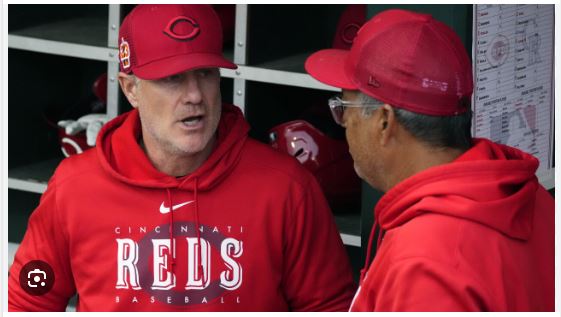Los Angeles – This weekend, Alon Leichman, the Cincinnati Reds’ assistant pitching coach, has a job at Dodger Stadium. His thoughts are with Israel. The baseball instructor he learned from his first coach finds it difficult to persevere every day. The brother of the coach is said to still be held hostage in the Gaza Strip after being abducted from his house by Hamas terrorists seven months ago.
“He was still alive as of ten days ago,” Leichman stated on Thursday. He has appeared in a video of hostages. Leichman’s former Israeli national team member was also abducted. Leichman remarked, “I’m afraid he’s not alive.” For Israelis, the Oct. 7 Hamas strike is similar to the Sept. 11 Al Qaeda attack for New Yorkers in that everyone is aware of someone who lost their life.
This week was Memorial Day in Israel. One of Leichman’s buddies there sent him something dark and sorry. The inscription said, “I only made it to four graves today.” For Leichman, who played collegiate ball at UC San Diego and Cypress College before being born and reared in Israel, these should be joyous occasions. Along the way, he pitched for Israel in the 2020 Olympics and served as a minor league instructor for six years with the Seattle Mariners and temporarily for the Dodgers. Last season, he was employed by the Reds.
He’d reached the big leagues. He declared, “I am living out my dream.” The silver dog tag around his neck serves as a constant reminder to himself of a nation’s tears, no matter where he travels. The patriotic demand for the hostages, “Bring them home – now!” is embossed on the dog tag in both Hebrew and English.
Leichman took part in Saturday-evening marches with that catchphrase while he was in Israel last winter. There, he didn’t wear the dog tag. Cradling the tag in his palm, he remarked, “I feel like this is when I need to wear this when I come to the States because it creates conversation.” The rise of anti-Israel protests doesn’t frighten him. There was always the possibility of a suicide bomber where he was raised. “Every bus I went on,” he stated, “I had the thought that it might blow up.”
He doesn’t mind having those discussions, though, if only to impart his own knowledge. He acknowledged that convincing people that what they see on social media differs from his actual experience might be challenging. Leichman added that his training in the Israeli army was rigorous and that he was not allowed to fire if he saw a suspected terrorist close to a civilian. After spending two months in Gaza, his brother returned recently and said that terrorists had fired at Israeli soldiers, thrown grenades, and dispersed through tunnels. Leichman declared, “I’m going to believe my brother.
This season, Leichman has worn gloves with two different designs: one with the Israeli flag and the words “Bring Them Home Now!”, and another with a picture of his dog tag and a Jewish star. Last week, he sent a photo of himself wearing one of the gloves to his former coach in Israel—the coach whose brother is still held captive. When it’s all you can do, it’s an act of sympathy combined with a sense of helplessness.



